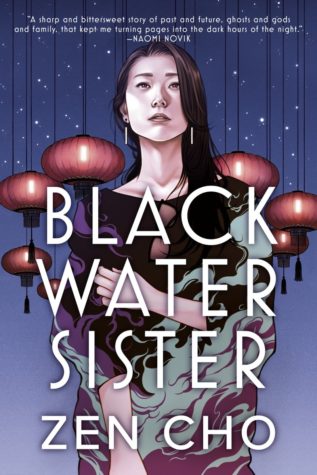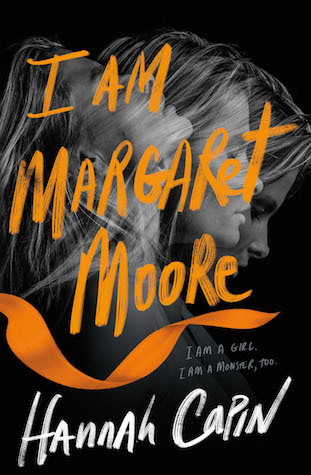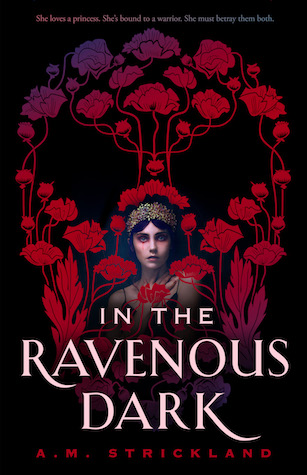
Content warnings: sexual assault; attempted rape; murder; domestic violence; general violence; homophobia [challenged]; gaslighting; possession
Summary [courtesy of Goodreads]: Jessamyn Teoh is closeted, broke and moving back to Malaysia, a country she left when she was a toddler. So when Jess starts hearing voices, she chalks it up to stress. But there’s only one voice in her head, and it claims to be the ghost of her estranged grandmother, Ah Ma. In life Ah Ma was a spirit medium, the avatar of a mysterious deity called the Black Water Sister. Now she’s determined to settle a score against a gang boss who has offended the god–and she’s decided Jess is going to help her do it. Drawn into a world of gods, ghosts, and family secrets, Jess finds that making deals with capricious spirits is a dangerous business. As Jess fights for retribution for Ah Ma, she’ll also need to regain control of her body and destiny. If she fails, the Black Water Sister may finish her off for good.
Zen Cho does SO MUCH in this novel, and all of it is amazing! We get a densely populated constellation of minor and more major deities from Malaysian, Chinese, and other East and Southeast Asian belief systems, we get a clear but never hand-holdy description of complex Malaysian socio-cultural interactions, we get a truly fabulous (and exquisitely snarky) grandmother-granddaughter relationship, and we get a nuanced glimpse into one young lesbian woman’s struggle to come out to her conservative immigrant family. It’s a horror story for sure, and the possession and supernatural violence that happen in it are unflinching and often truly terrifying, but it’s also a story about human greed, toxic masculinity, intimate partner violence, family ties, and millenial disappointment. I loved how Cho mixes the everyday with the supernatural, and I particularly enjoyed the way Jessamyn’s twenty-something directionlessness butts up against her incredibly purpose-driven Ah Ma and the Black Water Sister herself.
Also, despite all of the content warnings above, it is a very fun novel much of the time, thanks mostly to Cho’s stylistic dexterity and main character Jessamyn’s sarcasm. Her rapport with her dead Ah Ma, who just happens to be living in her mind and occasionally possessing her body (with AND without her permission) is frequently hilarious, even in the midst of true peril and horror (though the consequences of nonconsensual possession are never brushed aside or made light of). The novel walks a fine line between serious/intense and low-stakes for much of the first half, until the titular Black Water Sister truly makes herself known to Jessamyn. At that point, the intensity takes over (though, again, not without a heaping measure of snark mixed in), along with the reason this book fits in the “Angry Girls/Furious Femmes” category. Which brings us to
SPOILER TERRITORY
“‘What the fuck is your problem?’ she roared. The sound of her own voice broke through her terror. Beyond it, she found rage–and in its blazing heart, power.”
By the time Jessamyn talks to the Black Water Sister directly, she’s angry as fuck. She’s seen her uncle–a priest–get attacked; she’s been drugged, temporarily betrayed, and possessed by her Ah Ma; she’s been attacked herself. She’s also probably got a fair heap of latent anger about her own place in life–having to constantly manage her mother’s anxieties and her father’s cavalier attitude toward his own delicate health; having to work, unasked, for free for her uncle; having to find a career AND a purpose as a new Harvard graduate; having to keep her long-distance relationship with her girlfriend a secret so as not to risk her homophobic family’s love (not to mention having to manage said girlfriend’s expectations about adulthood, autonomy, and cutting ties with bigoted people). She’s got A LOT going on.
But the Black Water Sister has anger of her own–a much deeper, more primal fury that is practically all that animates her. She ‘teaches’ Jessamyn that rage can be powerful (particularly when there’s a god’s strength and relative invincibility behind it), and–via quasi-consensual possession–fights back against would-be rapists and murderers in a way that is, for the incredibly traumatized Jessamyn, both satisfying and terrifying:
“She put her mouth on his jaw as though she was kissing him and bit down until her teeth met bone…She had never felt like this before, in life or in death. No one else had ever offered her such a wondrous sacrifice–these men’s bodies for her to break and bloody and use, as hers had once been used; their suffering a banquet for her to pick over at her leisure, their pain a salve for her own unceasing torment…A great tenderness welled up inside her for Jessamyn, a profound love for this strong young body that would let her do all she wanted. She would do the girl justice. She was going to enjoy the night.”
We learn that the Black Water Sister was once human, the victim of her own partner’s terrible rage. We also learn that once unleashed, she will not stop. But, according to the redemptive logic of Cho’s novel, such violence creates an unproductive cycle:
“Jess had felt the god’s hurt that was her rage that was her hunger. A soul who died the way she had could never be at rest. Now that she had Jess as a channel for that hunger, she would never let her go. That dark fury would consume Jess until she burned down to nothing…”
To be honest, I did not love the resolution of this plotline. In the end, Jessamyn interrupts the Black Water Sister’s final vengeance, via a dreamscape scenario where the deity finds the energy to murder her erstwhile murderer in graphic detail. Jessamyn gently insists that the man is already dead–has been dead for generations, in fact, and this somehow, eventually, soothes the Black Water Sister, who mourns her continued love of her murderer, relinquishes her hold on Jessamyn, and moves on fully from the mortal plane. I appreciated the novel’s nuanced commentary on survivorship, the fraught dynamic of intimate partner violence, and cycles of abuse and intergenerational trauma (since Jessamyn’s Ah Ma was also the victim of spousal rape and other violence), but I didn’t love the seeming message that violence–and therefore rage–are counterproductive. I’m not sure why the Black Water Sister couldn’t’ve completed her vengeance–mentally killing a man who no longer existed–in order to find catharsis and release, since she’d already killed so many real men. I’m not sure why Jessamyn’s intervention was useful, or effective. But I’m an angry bitch, as this blog has made clear, so maybe Cho’s is the healthier lesson. (I still remain unconvinced it’s a particularly empowering lesson, in the world we live in, though. This ending reminds me of similar issues I had with the conclusion of Erica Waters’s The River Has Teeth (review to come later this month), another story about male violence, female rage, and unstoppable water spirits.)
Jessamyn emerges with a strong dose of PTSD, to be sure, but she’s also empowered to live her life on her own terms (almost being raped and murdered, and having your body become a murderous vessel for a god might do that, I guess). I appreciated the open-ended conclusion where she’s about to come out to her parents. She doesn’t know how they’ll react, but she’s got an exit plan for Shanghai, a job, and a future life with her girlfriend. She’s safe either way, now, and she assures herself (and the reader) that things will work out, one way or another. It’s not the happiest ending, but it’s realistic, and it’s a responsible message for LGBTQIA+ youth (or adults!) who might be understandably hesitant to come out to loved ones. I can’t help but think that Jessamyn’s parents will accept her as she is (particularly since her mother was so quick to believe her daughter’s account of the Black Water Sister), but perhaps that’s my own wishful thinking.


